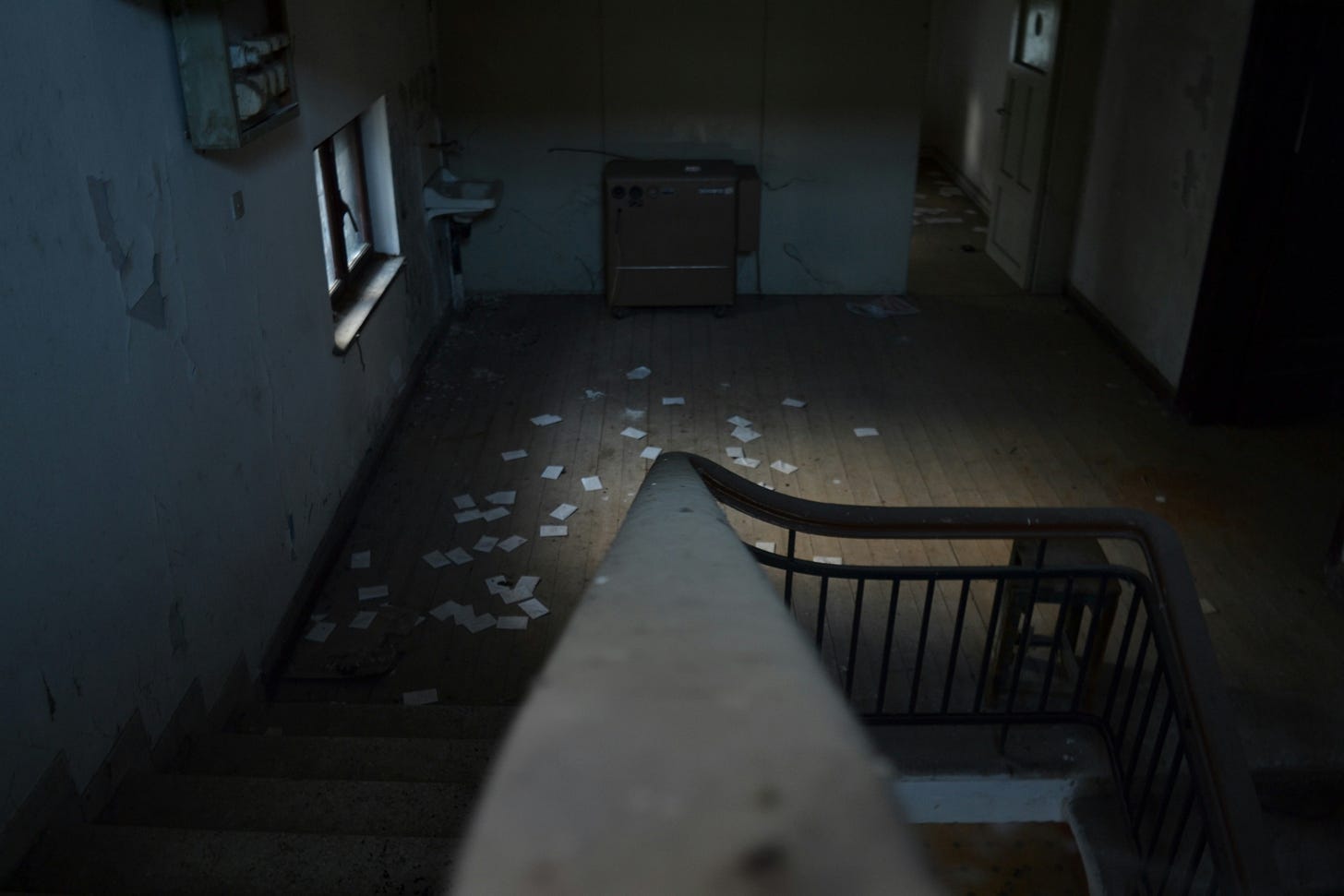
Today is Halloween, and that means young people will be flooding the streets in masks and sugar-induced joy, while dentists sharpen their tools for the coming months. But I keep thinking about ghosts, not the sheeted kind, but the ones that occupy space and time itself. The older I get, the more I find myself drawn to Día de los Muertos rather than Halloween. Maybe that’s the slow revelation of age, how the afterlife becomes less theory, more proximity. You start to recognize the dead not as gone, but as lingering companions.
Along with wraiths come exorcisms, some necessary, many not. The past should be learned from, not lived in. But its ghosts aren’t to be feared; they’re meant to be spoken with. My partner reminds me that this is the season when the veil thins, when memory itself becomes sacred. We stand on the shoulders of giant failures and quiet triumphs, and the trick is to hold both without losing balance.
Maybe that’s why I’ve always loved history more than any other subject. It’s the most honest ghost story we have. Each generation builds another floor on the same creaking house. My grandfather used to tell me about Baltimore before the 1968 uprisings, and about the biting winters of 1930s Indiana, when you could watch your spit freeze before it hit the pavement. He spoke of racism and resilience, of poverty and pie crusts cooling on a windowsill — that aching, American blend of cruelty and sweetness.
When he left the haunted house of the industrial Midwest for the East Coast, he found himself in another one, Howard University, in the federal city, alive with the ghosts of governance and resistance. There, free Black communities built sanctuaries in the shadow of a nation that wanted to forget them. My other grandfather, who hailed from Chester and fought in those same wars, shared the same instinct: don’t flee the haunted house. Learn its floorboards. Listen for the creaks. Make peace with its spirits.
It makes you rethink what “haunted” means. Maybe it isn’t a curse at all. Perhaps it’s simply the state of being human. We are never not surrounded by echoes. The Western mind wants a tidy narrative arc — rise, fall, and redemption — but the older I get, the more I feel the Eastern rhythm: history as a long, continuous line of light, looping through the living and the dead alike.
So, happy Halloween.
Don’t fear the haunted house that is history.
Enter it.
Speak softly to its ghosts.
They’re not here to scare you; they’re here to teach you how to live.







https://www.amazon.com/American-Contradiction-Revolution-Revenge-1950s/dp/0300282435
There are ghosts and there are spirits, but they aren't the same. Zeit geist is literally spirit of the time or spirit of the age geist also means ghost.. So then, what is the spirit of America? Othering, racism, greed, agression, selfishness, even our philanthropy is self serving at it's core.
I am of two minds on ghosts, I don't believe in them, yet I have had a couple of inexplainable experiences. I take refuge in George Bernard Shaws dictum, that the test of a first rate intelligence is to be able to hold two mutually exclusive ideas at the same time and still be able to function.
As regards ghosts, Well the ruling class, the powers that be, promote the idea of non violent demonstrations, of course they do, violence shakes their knees and destroys property and the one thing that they worship is property.
Nay, the British left India because of the ghosts (Spirit, geist) of Subhas Chandra Bose and the Indian National Army., and millions of armed and angry Indians, not because of Ghandi.
Bose had met with Hitler and had formed the Indian Legion (not part of the Wehrmacht) that fought alongside the Wehrmacht. The Indian National Army, had joined with the Japanese to fight the British in India.
Neither were fascists. They were Indian Nationalists. The Indian National Army (INA) disintegrated after the defeat of Japan in World War II in 1945, as its military support and resources vanished. The surviving troops were captured by the British, who then tried some of them for treason. Despite the INA's military failure, its trials back in India became a catalyst for public nationalism, which helped hasten India's independence.
There should be a spirit of racial equality, that will benefit all of mankind, not just white males, but it has been co-opted by cell phones games, , computers, cars, games and what are, in reality luxuries, whom we think are necessities, easy living, even for the poor
I am pretty sure that people who say they can't afford food and medicine have a cell phone and a provider.
By the way, I am well off and can afford luxuries, but I don't have a cell phone and never will.